Jackfruit, a tropical giant known for its spiky exterior and sweet, aromatic flesh, has become a culinary sensation in recent years. From vegan pulled “pork” sandwiches to tropical smoothies, this versatile fruit has captured the hearts (and palates) of food enthusiasts worldwide. However, a common question lingers in kitchens and online forums: Is it safe to eat jackfruit that’s been left unrefrigerated overnight? This article delves into the science of food spoilage, bacterial growth, and practical storage tips to answer this query definitively.

Understanding Jackfruit: A Brief Overview
Before addressing storage concerns, it’s essential to grasp what makes jackfruit unique. Native to South and Southeast Asia, this fruit can weigh up to 80 pounds and contains edible bulbs (the fleshy parts we eat) encased in a fibrous core. Fresh jackfruit is rich in vitamins C and B6, potassium, and dietary fiber, while also being low in fat. Its high sugar content (around 25% by weight in ripe varieties) contributes to its sweet flavor but also makes it a potential breeding ground for microorganisms if mishandled.
The Perishability of Jackfruit: How Quickly Does It Spoil?
Like most fresh produce, jackfruit is perishable. However, its shelf life depends on several factors:
- Ripeness: Unripe jackfruit (used in savory dishes) has a firmer texture and may last slightly longer than ripe, soft fruit.
- Processing: Whole, intact jackfruit has a protective rind that delays spoilage. Once cut, the flesh is exposed to oxygen and contaminants.
- Environmental Conditions: Temperature, humidity, and exposure to light or pests accelerate degradation.
A whole, uncut jackfruit can last 1–2 weeks at room temperature, but once sliced open, its flesh becomes vulnerable. The U.S. Department of Agriculture (USDA) categorizes cut jackfruit as a perishable item, advising refrigeration within two hours of exposure to room temperature.
The Danger Zone: Bacteria and Overnight Exposure
The primary concern with leaving jackfruit (or any perishable food) out overnight is bacterial growth. Bacteria multiply rapidly between 40°F (4°C) and 140°F (60°C), a range dubbed the “danger zone.” At room temperature (typically 68–72°F/20–22°C), harmful pathogens like Salmonella, E. coli, and Listeria can double in number every 20 minutes.
While jackfruit’s natural acidity (pH around 5–5.5) may inhibit some bacteria, its high moisture content (over 70%) and sugar content create an ideal environment for osmophilic yeasts and molds. These microorganisms not only spoil the fruit but may also produce mycotoxins, which are harmful if ingested.
Key Risks of Overnight Exposure:
- Spoilage Bacteria: Pseudomonas and Enterobacter species can cause off-flavors, slime, and discoloration.
- Pathogenic Bacteria: Though less common in jackfruit than in animal products, Salmonella and E. coli could contaminate the fruit via improper handling or cross-contamination.
- Mold Growth: Overnight exposure increases the likelihood of fuzzy green or white molds, which can penetrate deep into the flesh.
Factors That Influence Spoilage Rates
Not all scenarios are equal. The safety of leaving jackfruit out overnight depends on:
-
Ambient Temperature:
- In a cool kitchen (below 70°F/21°C), bacterial growth slows but doesn’t stop.
- In warm, humid climates (above 75°F/24°C), spoilage accelerates dramatically.
-
Exposure to Air and Contaminants:
Uncovered jackfruit dries out and attracts pests, while improperly stored fruit may pick up bacteria from surfaces or hands.
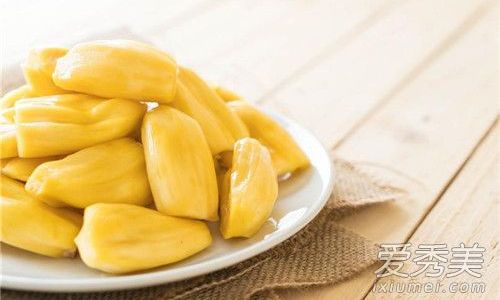
-
Initial Hygiene:
Fruit washed with clean water and cut with sanitized tools is less likely to harbor pathogens.
Can You Eat Overnight Jackfruit? The Verdict
The answer isn’t a simple yes or no. Here’s a breakdown:
- If the jackfruit was whole and unopened: It’s likely safe, as the rind protects the flesh. However, once cut, the clock starts ticking.
- If the jackfruit was already sliced: Consuming it after a night at room temperature is risky. While it might not cause illness in healthy individuals, vulnerable populations (children, the elderly, pregnant people, and immunocompromised individuals) should avoid it.
- Visual and Olfactory Checks: If the fruit shows no signs of mold, off-odors, or sliminess, it might be edible—but this isn’t a guarantee. Some pathogens, like Listeria, don’t alter taste or smell.
Food Safety Guidelines: What the Experts Say
Organizations like the USDA and the Food and Drug Administration (FDA) provide clear directives:
- Refrigerate perishables within two hours of cutting or cooking.
- Discard cut fruit left at room temperature for more than four hours in warm environments.
- When in doubt, throw it out: The cost of food poisoning far exceeds the price of replacing the fruit.
How to Store Jackfruit Properly
To maximize freshness and safety:
-
Refrigeration:
- Place cut jackfruit in airtight containers or resealable bags.
- It can last 5–7 days in the fridge.
-
Freezing:
- For long-term storage, freeze jackfruit bulbs on a baking sheet before transferring to freezer-safe bags.
- Frozen jackfruit keeps for 6–8 months.
-
Drying:
Dehydrate jackfruit slices at 135°F (57°C) until leathery. Store in a cool, dark place.
-
Canning/Preserving:
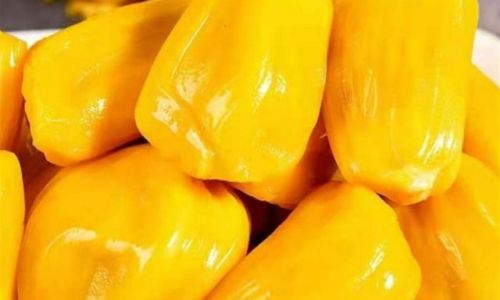
Cooked jackfruit can be processed in a water bath canner for shelf-stable storage.
Common Myths About Jackfruit Spoilage
- “The rind protects it forever”: While the rind delays spoilage, once cut, the flesh is exposed.
- “Lemon juice prevents spoilage”: Acidic marinades slow browning but don’t halt bacterial growth.
- “If it smells fine, it’s safe”: Pathogens like E. coli don’t alter odor.
Real-Life Scenarios: When to Toss or Keep
-
Scenario 1: You left a bowl of jackfruit on the counter overnight after a party.
- Action: Discard it. Even if it looks okay, the risk isn’t worth it.
-
Scenario 2: You cut a jackfruit in a sterilized kitchen, covered it, and the temperature was 65°F (18°C).
- Action: Refrigerate immediately and consume within 24 hours.
-
Scenario 3: You found mold on the surface but scraped it off.
- Action: Toss the entire fruit. Mold roots (hyphae) penetrate deeper than visible.
The Environmental Angle: Waste vs. Safety
Food waste is a global crisis, with 1.3 billion tons discarded annually. However, prioritizing safety over frugality is crucial. A single case of food poisoning can lead to medical bills, missed work, and long-term health issues. Balance sustainability by composting scraps or using overripe jackfruit in jams/smoothies—but never gamble with spoiled food.
Conclusion: Err on the Side of Caution
Jackfruit’s allure lies in its sweet complexity, but its perishability demands respect. While leaving it out overnight might not always result in illness, the stakes are too high to ignore food safety guidelines. Refrigerate promptly, store correctly, and trust your senses—but remember that some dangers are invisible. In a world where foodborne illnesses affect 1 in 6 Americans yearly, vigilance is the best recipe.
So, the next time you’re tempted to leave that jackfruit bowl on the counter, ask yourself: Is a moment of convenience worth a day (or more) of discomfort? The answer, like the fruit itself, is clear.

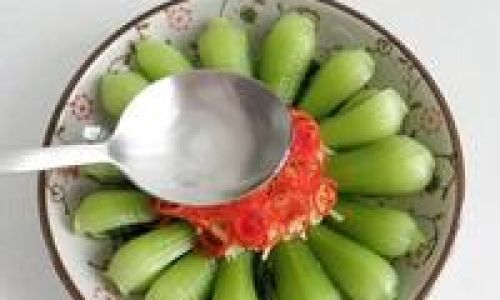
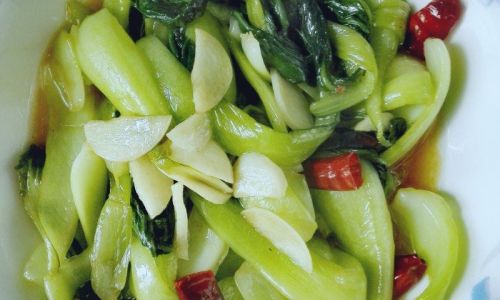
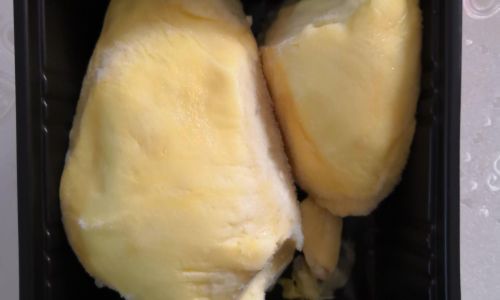
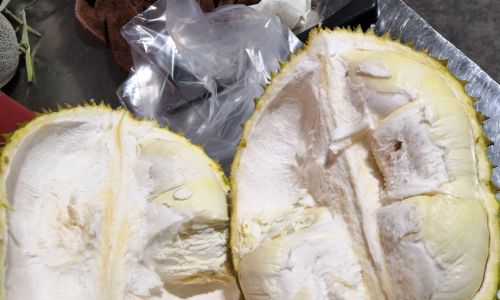

0 comments